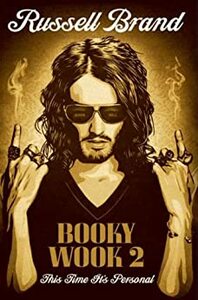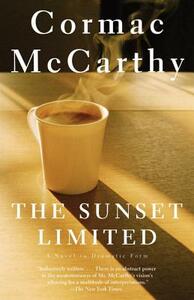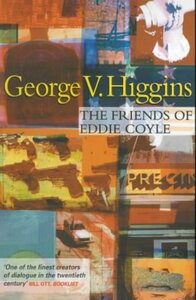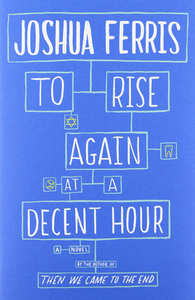Take a photo of a barcode or cover
matthewcpeck's Reviews (587)
This iconic 1970 Bostonian thriller made for one of the most engrossing and purely enjoyable fiction experiences I've had in months. Eddie Coyle is the its character but not its MAIN character in any typical sense, just as his "friends" aren't really that. Higgins' debut novel is about a network of petty criminals, mobsters, law enforcement, and spouses, and no single character is granted significantly more time than any other in the fast-paced, ultimately tragic storyline.
The book is exalted for several reasons. One of those is obvious from page 1: its de-glammed, authentic, extremely profane dialogue. 'The Friends of Eddie Coyle' is of a piece with the gritty and morally ambiguous American cinema of the 1970s, and you can sense its influence when you watch the loquacious psychopaths populating the films of Martin Scorsese and Quentin Tarantino (in the last 10 pages, there is a meticulous conversation about the dos and don'ts of cheese sandwich preparation, and it would make Tarantino envious).
The book was in fact adapted for a well-regarded Robert Mitchum film in the early 70s. I have yet to see it, but it segues into one of the other standout qualities of Higgins' novel: its formal strangeness. Like 'No Country For Old Men', 'Eddie Coyle' reads like a screenplay. It consists almost entirely of brilliantly crafted conversations, while the dialogue-free sections are as terse as stage directions. Apart from a brief flashback in the mind of a banker held at gunpoint, there is absolutely no exposition, psychology, or musing that exists outside of the characters' speech. This enhances the sensation of watching something relentlessly progress before ones eyes, instead of reading a normal story. And that's ideal for a crime thriller.
'The Friends Of Eddie Coyle' is pretty obligatory, at this point, for Boston Metro residents and for connoisseurs of crime fiction. But it transcends the genre and setting through its style and perfect structure, and, at 183 pages, it's short enough that you don't have an excuse not to read it someday.
The book is exalted for several reasons. One of those is obvious from page 1: its de-glammed, authentic, extremely profane dialogue. 'The Friends of Eddie Coyle' is of a piece with the gritty and morally ambiguous American cinema of the 1970s, and you can sense its influence when you watch the loquacious psychopaths populating the films of Martin Scorsese and Quentin Tarantino (in the last 10 pages, there is a meticulous conversation about the dos and don'ts of cheese sandwich preparation, and it would make Tarantino envious).
The book was in fact adapted for a well-regarded Robert Mitchum film in the early 70s. I have yet to see it, but it segues into one of the other standout qualities of Higgins' novel: its formal strangeness. Like 'No Country For Old Men', 'Eddie Coyle' reads like a screenplay. It consists almost entirely of brilliantly crafted conversations, while the dialogue-free sections are as terse as stage directions. Apart from a brief flashback in the mind of a banker held at gunpoint, there is absolutely no exposition, psychology, or musing that exists outside of the characters' speech. This enhances the sensation of watching something relentlessly progress before ones eyes, instead of reading a normal story. And that's ideal for a crime thriller.
'The Friends Of Eddie Coyle' is pretty obligatory, at this point, for Boston Metro residents and for connoisseurs of crime fiction. But it transcends the genre and setting through its style and perfect structure, and, at 183 pages, it's short enough that you don't have an excuse not to read it someday.
J.M. Ledgard's novel is slim, strange, visionary, sometimes-pretentious and oft-depressing, and it packs an intellectual and emotional wallop. Its three narratives - a chance love affair between a man and a woman a hotel in Northern France, and a jump forward in time to his captivity by jihadists in Somalia and her work as a 'biomathemetician' researching the deepest levels of the ocean - are skillfully, daringly intertwined with meditations on art, religion, and the fate of the human race. And, as promised by the title, there is recurring metaphorical and literal imagery of the underworld, burial, and hell.
In spite of all of this thematic weight, 'Submergence' careens forward like a thriller, and it's hard to put down. Ledgard's prose hypnotizes with its physicality and its hallucinatory connections (a Somali coastal town during a rainstorm looks like a "gunmetal Thames"). And when I put it down for the final time, at the finish, I had to stop and stare out the train window for a few minutes to allow the intensity to subside. It's not a comfortable read, but it's a brilliant one.
In spite of all of this thematic weight, 'Submergence' careens forward like a thriller, and it's hard to put down. Ledgard's prose hypnotizes with its physicality and its hallucinatory connections (a Somali coastal town during a rainstorm looks like a "gunmetal Thames"). And when I put it down for the final time, at the finish, I had to stop and stare out the train window for a few minutes to allow the intensity to subside. It's not a comfortable read, but it's a brilliant one.
"Language acts as an acid over its message. If you no longer care about an idea or feeling, then put it into language. That will surely be the last of it, a fitting end. Language is another name for coffin."
Thus states Samuel, the narrator of 'The Flame Alphabet'. This quote is a fine example of the paradoxical brilliance to be found in Ben Marcus's third full-length book. After the mindbending experimentalism of 'The Age Of Wire And String' and 'Notable American Women', he published a conventionally structured story, albeit a very weird one. And though 'The Flame Alphabet belongs one of the most over-saturated genres of recent years - post-apocalyptic - it never feels like familiar territory.
In Marcus's novel, civilization is brought to a screeching halt when the speech of any person under 18 begins to literally sicken adults. Soon language between adults is unbearably toxic, as well as any written, spoken, or even signed language. The cataclysm is experienced completely through Samuel's eyes, as 'The Flame Alphabet' moves from a realistic domestic drama (man and wife and rebellious teenage daughter in upstate New York) to visions increasingly bizarre and unsettling.
This book is overflowing with ideas about consciousness and language, and it's begging for interpretations. Is it about parenthood? The dehumanization caused by mass communication? Antisemitism? (I didn't get into the important subplot about Samuel's religious practice of listening to transmissions from faraway rabbis, in forest huts built over mysterious "Jew holes".)
The inimitable tone of Marcus's writing makes all of this fascinating and funny, as Samuel's detachment and surreal descriptions are shot through with sudden bursts of raw emotion. The only tedious part comes during the second, longest section of the book, in which Samuel is separated from his family and works in a Rochester government facility where he experiments with the toxicity of different written languages. But even when it goes on a little long, it's always inspired.
'The Flame Alphabet' is a marvelous finish to one of the most remarkable and idiosyncratic trilogies in English-language fiction. I hope it's not a prophecy.
Thus states Samuel, the narrator of 'The Flame Alphabet'. This quote is a fine example of the paradoxical brilliance to be found in Ben Marcus's third full-length book. After the mindbending experimentalism of 'The Age Of Wire And String' and 'Notable American Women', he published a conventionally structured story, albeit a very weird one. And though 'The Flame Alphabet belongs one of the most over-saturated genres of recent years - post-apocalyptic - it never feels like familiar territory.
In Marcus's novel, civilization is brought to a screeching halt when the speech of any person under 18 begins to literally sicken adults. Soon language between adults is unbearably toxic, as well as any written, spoken, or even signed language. The cataclysm is experienced completely through Samuel's eyes, as 'The Flame Alphabet' moves from a realistic domestic drama (man and wife and rebellious teenage daughter in upstate New York) to visions increasingly bizarre and unsettling.
This book is overflowing with ideas about consciousness and language, and it's begging for interpretations. Is it about parenthood? The dehumanization caused by mass communication? Antisemitism? (I didn't get into the important subplot about Samuel's religious practice of listening to transmissions from faraway rabbis, in forest huts built over mysterious "Jew holes".)
The inimitable tone of Marcus's writing makes all of this fascinating and funny, as Samuel's detachment and surreal descriptions are shot through with sudden bursts of raw emotion. The only tedious part comes during the second, longest section of the book, in which Samuel is separated from his family and works in a Rochester government facility where he experiments with the toxicity of different written languages. But even when it goes on a little long, it's always inspired.
'The Flame Alphabet' is a marvelous finish to one of the most remarkable and idiosyncratic trilogies in English-language fiction. I hope it's not a prophecy.
3 1/2 stars. Three novels in, it's clear that Joshua Ferris is a skilled chronicler of contemporary middle-class existence, but never in the same way twice. 'Then We Came To The End' was an ensemble black comedy of office life, 'The Unnamed' tended toward the surreal and harrowing, and now 'To Rise Again At A Decent Hour' is a speedy comic novel with big themes and bit of tragedy.
The book's narrator is Paul O'Rourke - a bachelor Manhattan dentist, originally from Maine, with a Red Sox obsession and some social issues stemming from a traumatic childhood. (It's an authentic depiction of the way Sox fans actually WANT to be miserable.) Paul's voice is so well-crafted and sustained that the swirling of his thoughts could be mistaken for occasional sloppiness on Ferris's part. The book is rich with Paul's rants about shopping malls, the Yankees, smartphones ("me-machines"), and the inexorable downward slide into aging and death, a concept that's perfectly demonstrated in the string of dental patients described throughout. Like a Larry David or a Louis CK, though, you can't help but feel sympathetic for Paul, even as he makes you wince when recounting his doomed love affairs.
Like Ferris's previous novels, 'To Rise' is held together by a refreshingly unpredictable plot, starting with a stranger creating an online presence in Paul's name, and eventually leading to a doubt-based religion espoused by people claiming to descendants of a long-suppressed Semitic tribe. (Among other things, the book is about the purpose of religion in a world where all of the answers can be seemingly Googled.) Some of these story-threads are tenuous and are neglected towards the end - the whole internet identity-theft thing, for example, seems flimsy and under-explained. The book is better at being a character study - and Paul O'Rourke, with his hilarious, sad struggles to find 'something that is everything', is one of the greatest, most compelling characters I've spent time with in a while. Urban white males with comfortable incomes should always this be interesting.
The book's narrator is Paul O'Rourke - a bachelor Manhattan dentist, originally from Maine, with a Red Sox obsession and some social issues stemming from a traumatic childhood. (It's an authentic depiction of the way Sox fans actually WANT to be miserable.) Paul's voice is so well-crafted and sustained that the swirling of his thoughts could be mistaken for occasional sloppiness on Ferris's part. The book is rich with Paul's rants about shopping malls, the Yankees, smartphones ("me-machines"), and the inexorable downward slide into aging and death, a concept that's perfectly demonstrated in the string of dental patients described throughout. Like a Larry David or a Louis CK, though, you can't help but feel sympathetic for Paul, even as he makes you wince when recounting his doomed love affairs.
Like Ferris's previous novels, 'To Rise' is held together by a refreshingly unpredictable plot, starting with a stranger creating an online presence in Paul's name, and eventually leading to a doubt-based religion espoused by people claiming to descendants of a long-suppressed Semitic tribe. (Among other things, the book is about the purpose of religion in a world where all of the answers can be seemingly Googled.) Some of these story-threads are tenuous and are neglected towards the end - the whole internet identity-theft thing, for example, seems flimsy and under-explained. The book is better at being a character study - and Paul O'Rourke, with his hilarious, sad struggles to find 'something that is everything', is one of the greatest, most compelling characters I've spent time with in a while. Urban white males with comfortable incomes should always this be interesting.









